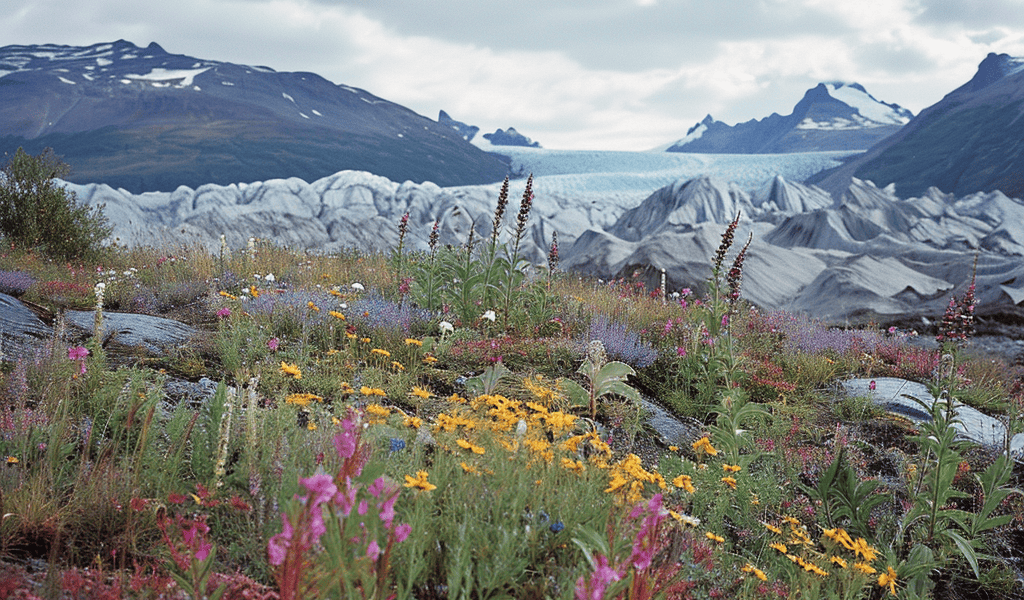After the retreat of glaciers, the dynamics of plant communities play a crucial role in the ecological succession of these areas. A recent study, conducted by a team of researchers from various institutions, sheds light on the importance of species addition and replacement in plant communities as they colonize the forelands of retreating glaciers.
The study, which encompassed 46 deglaciated sites worldwide, utilized environmental DNA and traditional surveys to quantify the relative significance of species addition versus replacement in driving community changes. The findings revealed that both processes, addition and replacement, contribute to the variation in plant communities over time, but their relative importance varies during the succession.
Immediately following the glacier retreat, taxa addition was found to dominate the community changes, aligning with the expectation in harsh environments. However, as the succession progressed, the importance of replacement increased, particularly in late-successional communities. The study also observed that the total β-diversity changes were more pronounced between early-successional communities than between late-successional communities, indicating a shift in community assembly dynamics over time.
The researchers highlighted the complexity of community assembly during plant succession, noting a generalized shift from the dominance of facilitation and stochastic processes in early-successional communities to a predominance of competition in later stages.
This comprehensive study provides valuable insights into the ecological dynamics of plant communities in deglaciated areas, emphasizing the role of species addition and replacement in driving community changes over the course of succession. The findings contribute to a better understanding of the mechanisms underlying plant succession and have implications for conservation and ecological restoration efforts in these rapidly changing environments.





